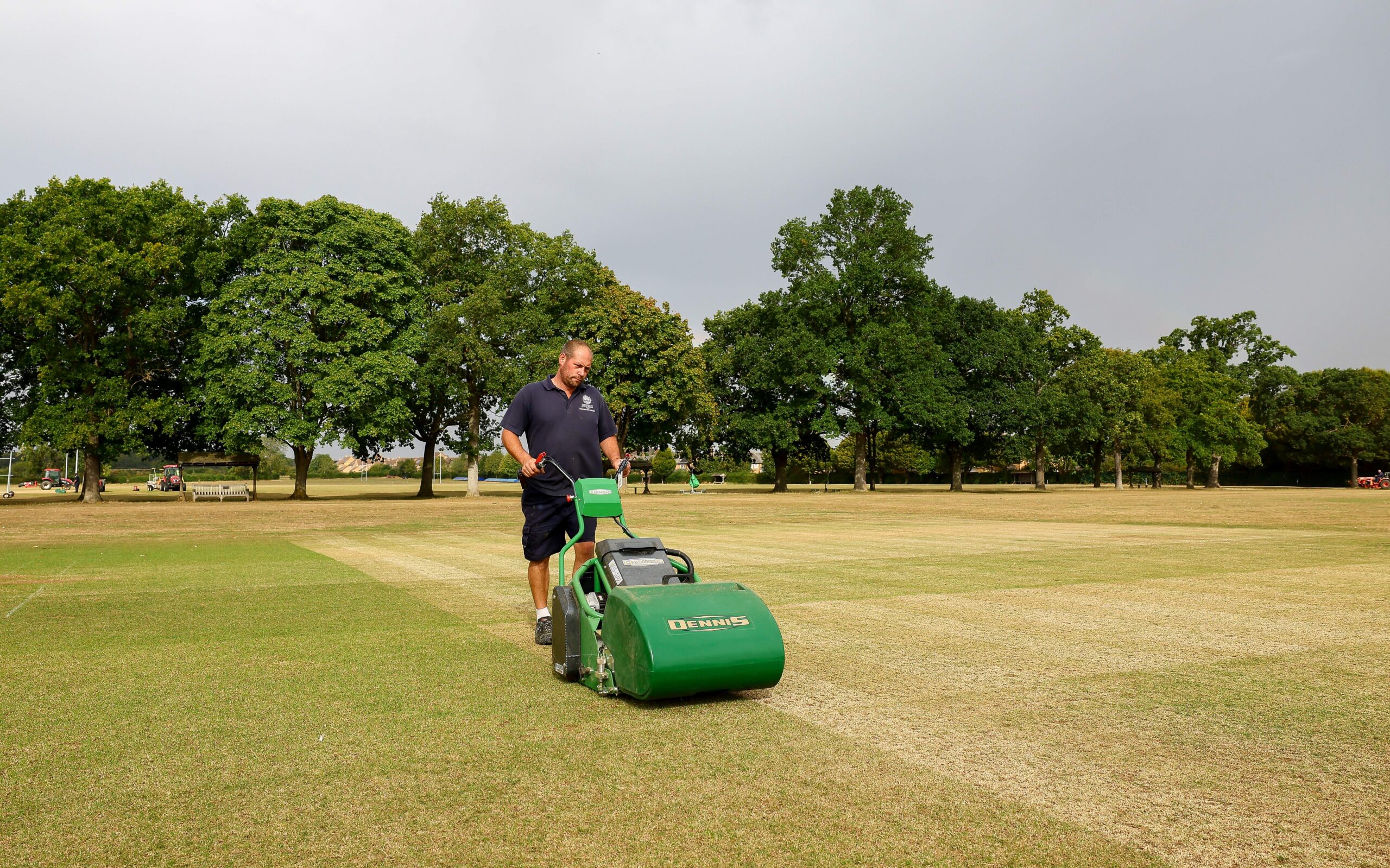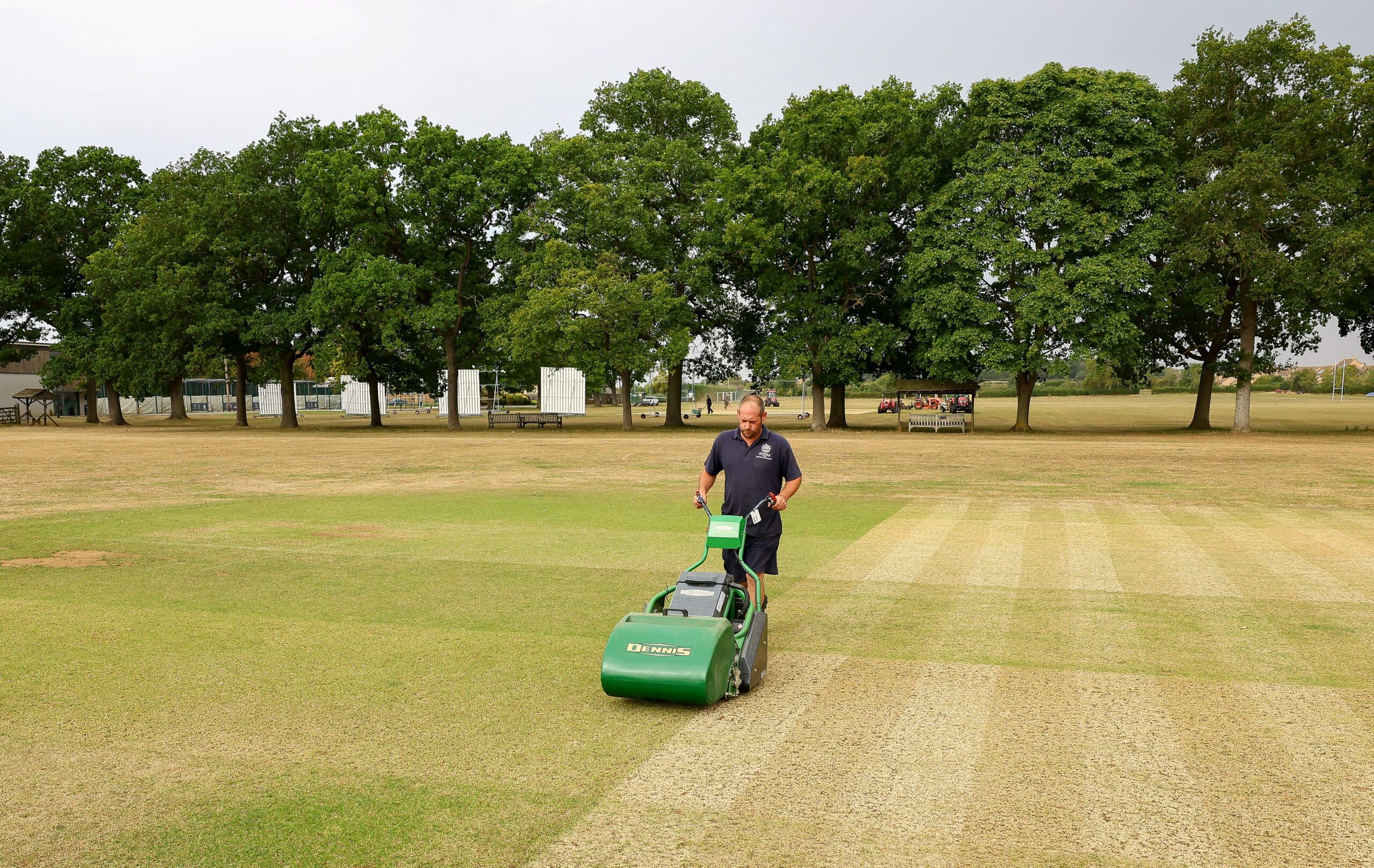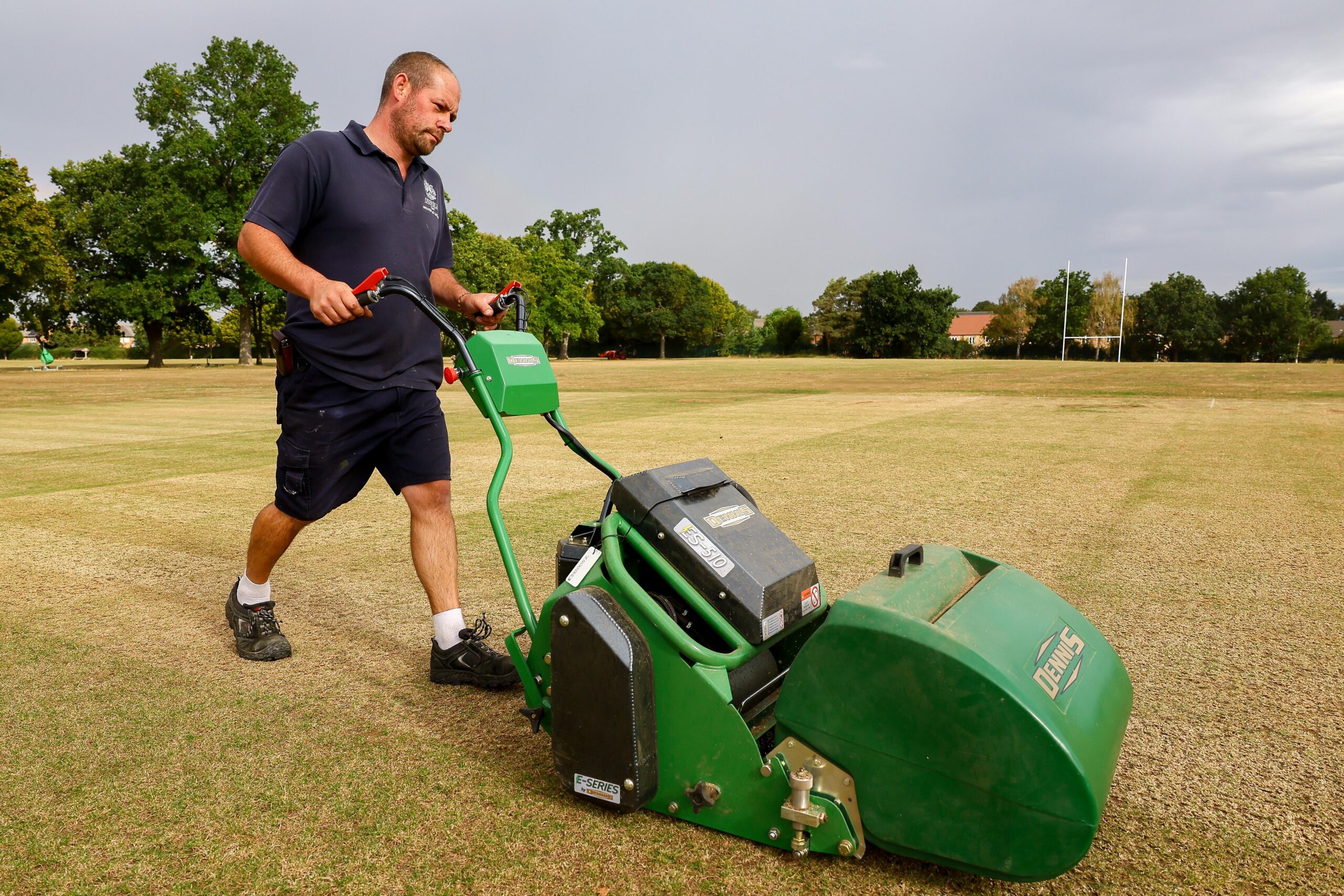Planning, moving to battery machinery and adaptability kept cricket surface standards in fine fettle for Oundle School’s standout season
The cricket season’s ended at independent Oundle School and it’s one likely to linger long in the memory of its groundstaff.
Managing a calendar of 257 matches and extreme weather relied on planning, machinery choice and adaptability to maintain playing surface standards in what was a record season for the Northamptonshire school, renowned for its cricketing provision.
An immense workload saw the grounds team not only preparing the squares for a bulging fixtures list but also supporting Northants Cricket Academy, a testament to the quality and reputation of the school’s facilities.
The workload involved preparing 60 strips on eight squares to host 257 matches as well as maintaining upkeep of 11 rugby and football pitches.
Challenging start
The team’s achievements come against the backdrop of one of the most challenging starts to the year for grounds professionals nationwide. The first half of 2025 was marked by prolonged dry spells, minimal rainfall and increased pressure on irrigation resources.
Across the sector, grounds teams have reported mounting difficulty in maintaining turf quality under such arid conditions, with fixture demands often compounding the pressure.
To help meet the challenges, the Oundle team reviewed their equipment and invested in a new battery-powered mower to support performance and sustainability.
For Sam Wyles, grounds team member for more than a decade, the season highlights how vital reliable, versatile machinery is in coping with unprecedented demand.
“We’ve always had plenty to manage,” he recalls, “but the number of matches this summer took us to another level. Early on we knew we needed a mower that could handle long days, give us flexibility and help us reduce the strain on the team.”

Switch to battery power
The decision to switch from petrol to battery power was not made lightly, Sam adds. After researching the market, speaking to colleagues at other schools and testing options, the team chose a Dennis ES-510 after sales manager Jason Briggs demoed the machine.
“We found the ES-510 had a really good battery life,” Sam reports. “Friends and colleagues at other schools have used the machine and it came highly recommended. It’s built to last.”
For the team, the benefits soon became clear: low noise, zero emissions, reduced HAVs and long-lasting battery power. “We use a lot of petrol-powered machinery and we’re finding that we need to reduce HAVs wherever we can,” Sam says.
“So, we’ve moved to battery-powered equipment and it’s working for us. The ES-510 doesn’t need much of a grip, meaning there’s less strain on wrists and the reduced handle arm vibration levels have really been noticeable.”
A busy school environment demands a keen focus on machinery noise, Sam explains. “It’s an issue for us but the quieter machine has eased that and we can start a bit earlier without affecting anyone else around us.”
Sustainability ambitions
With zero emissions and a full day’s battery life, the mower supported the school’s sustainability ambitions as well as its practical needs. “We’ve been using this mower to prep our cricket wickets instead of petrol equipment as we can get a full day’s running out of it.”
Time was at a premium all season and versatility quickly became one of the mower’s standout strengths, the team discovered. “We can swap quickly between cassettes, brushing wickets one moment, then switching back to a cylinder the next – meaning we need fewer machines to do the same range of jobs.
“The ability to adjust the cylinder or cutting height without tools is easy and saves time. Importantly, we can set the walking speed and the clip rate separately and the machine automatically keeps the clip rate consistent even if the speed changes. That gives us a better, more uniform finish while ensuring everyone on the team can work at the same pace,” Sam states.

Standards stayed high
Despite the packed schedule, standards were never allowed to slip. The built-in back-lapping feature in the controls allowed the team to keep the mower and grass in peak condition throughout the season.
“The school is deeply committed to becoming more environmentally friendly and sustainable,” says grounds manager Gary Peden. “After chatting with Richard at Oakham School, who uses this particular model, we went for the Dennis ES-510.
“It has given us the confidence to maintain the highest standards across every cricket pitch and square while using electric power. Its battery performance, low noise and versatility have allowed the team to work more efficiently – a huge step forward for us in also allowing us to move forward with more sustainable practices.”
For schools and clubs facing similar fixture pressures, he believes the lessons learned this season will be invaluable.
https://dennisuk.com/



